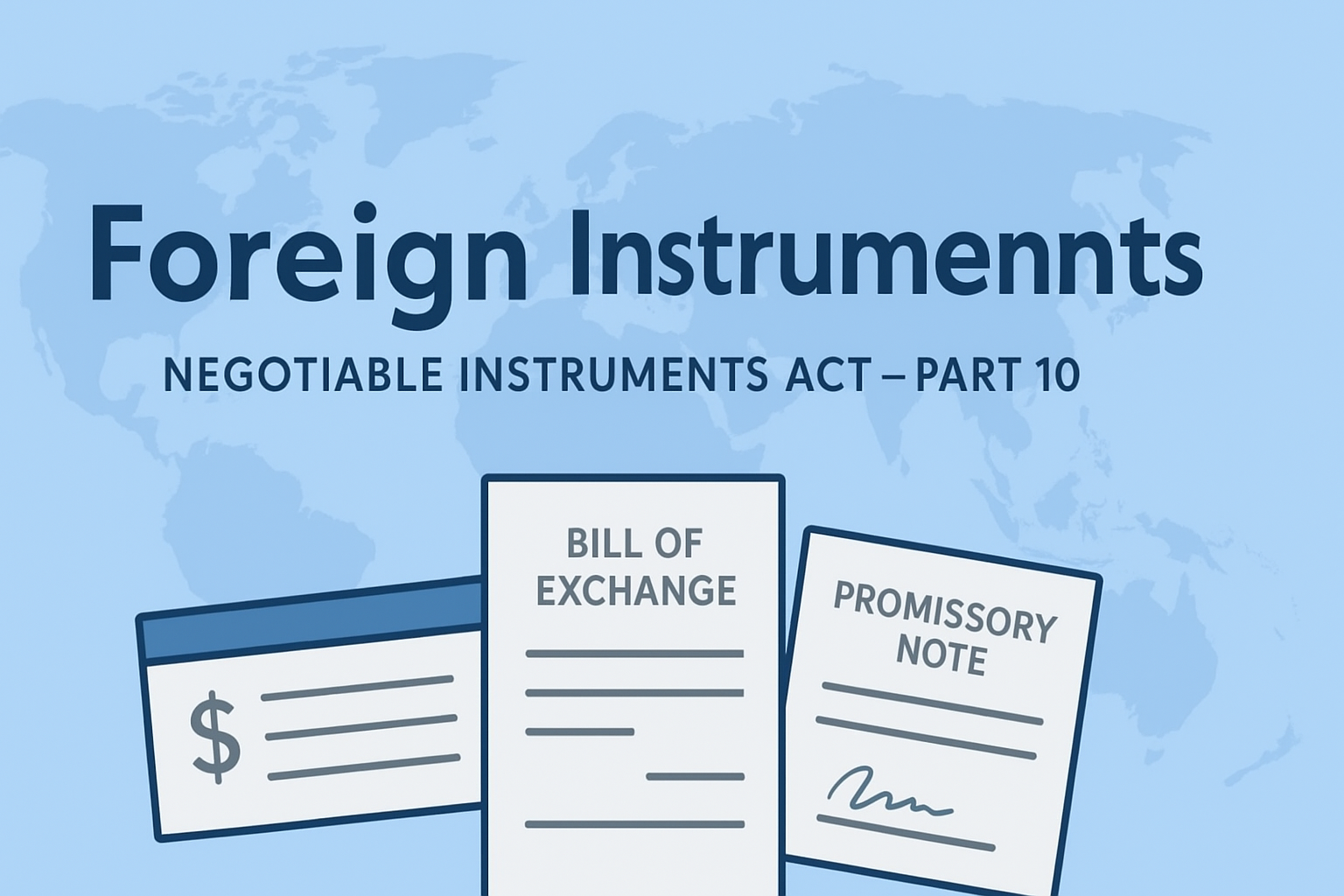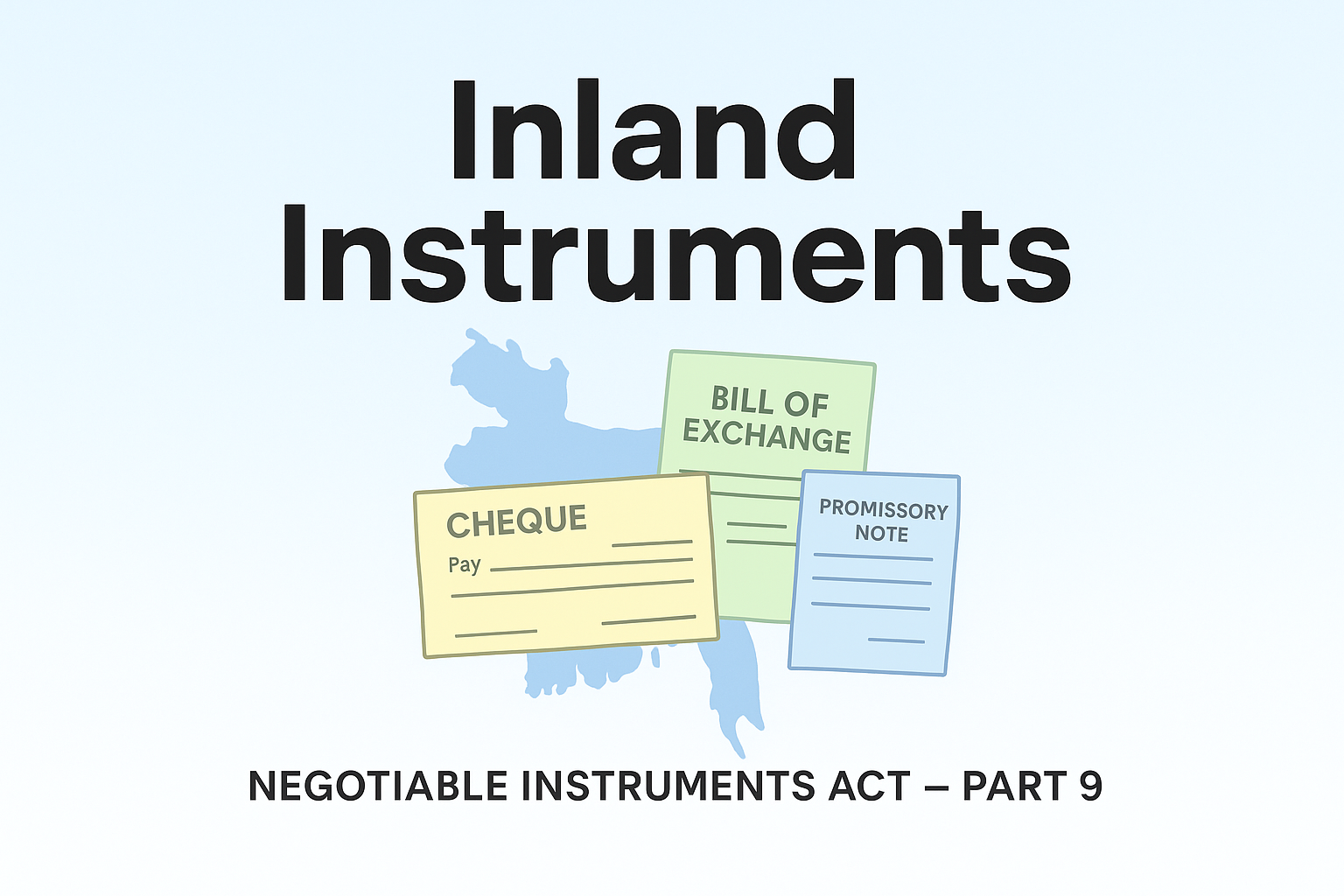Learn about endorsement and its effects on negotiable instruments like cheques, bills of exchange, and promissory notes. Understand types, legal implications, and banking impact.
Category: JAIBB
Negotiation of Negotiable Instruments: Meaning, Rules, Endorsements, Examples
Negotiations are essential in business, banking, and personal life. Learn the definition, types, importance, and key strategies of negotiation with real-life examples.
Foreign Instruments: Definition, Features, Differences & Examples
Foreign instruments: definition under the Negotiable Instruments Act, essential features, differences with inland instruments, practical banking examples, and exam-oriented notes for banking professionals.
Inland Instruments: Definition, Features, Examples & Banking Exam Notes
Inland instruments: definition under the Negotiable Instruments Act, key features, differences with foreign instruments, practical examples, and exam pointers for banking professionals.
Payment in Due Course: Definition, Conditions, Effects & Examples
Payment in due course: meaning under the Negotiable Instruments Act, essential conditions, banker’s protection, effects on parties, and practical examples for banking and competitive exams.





